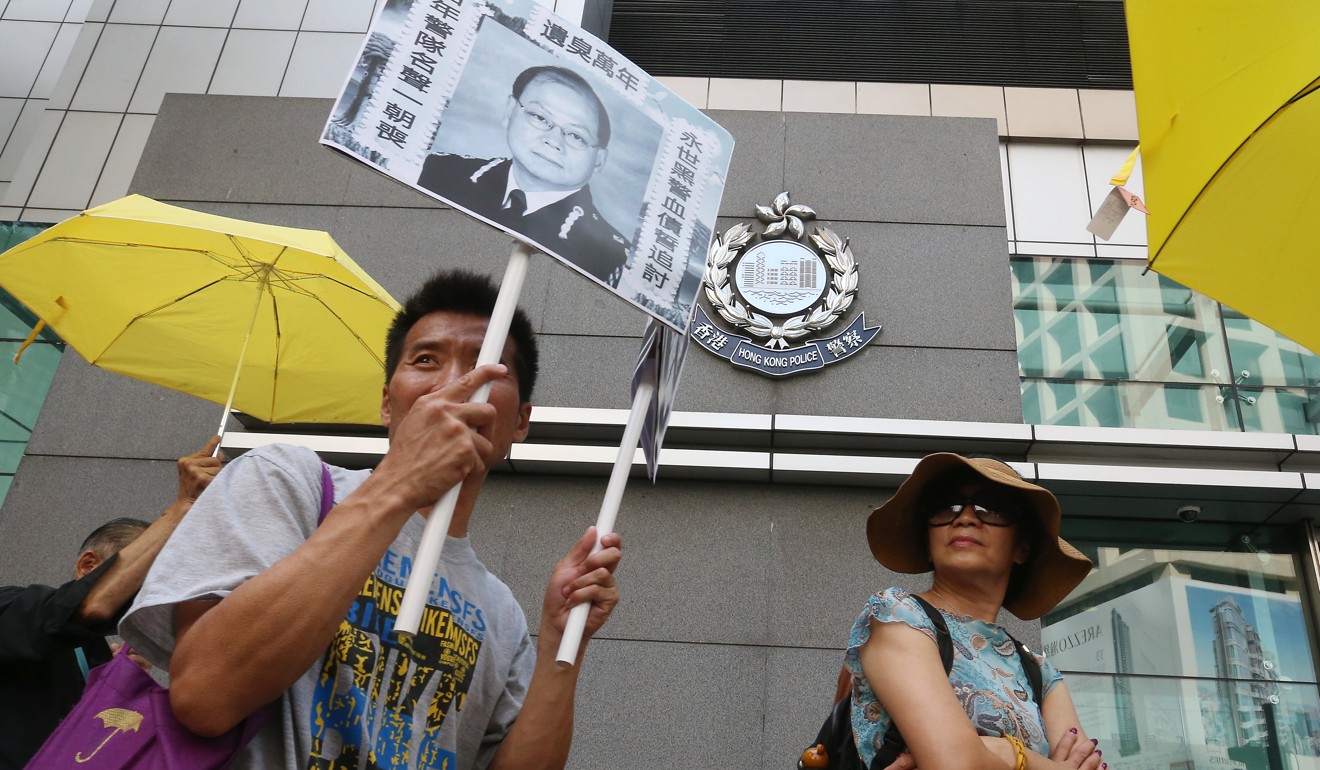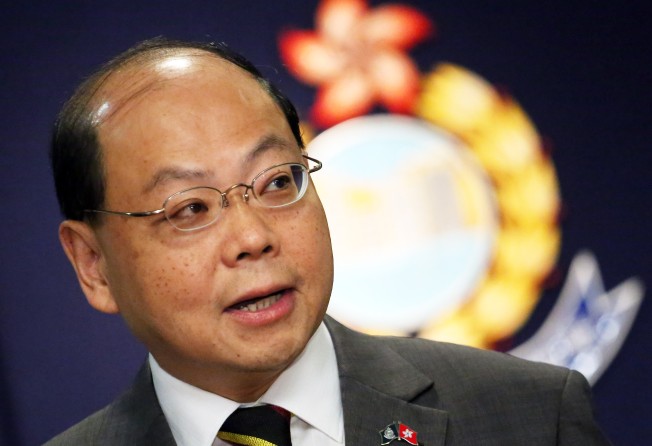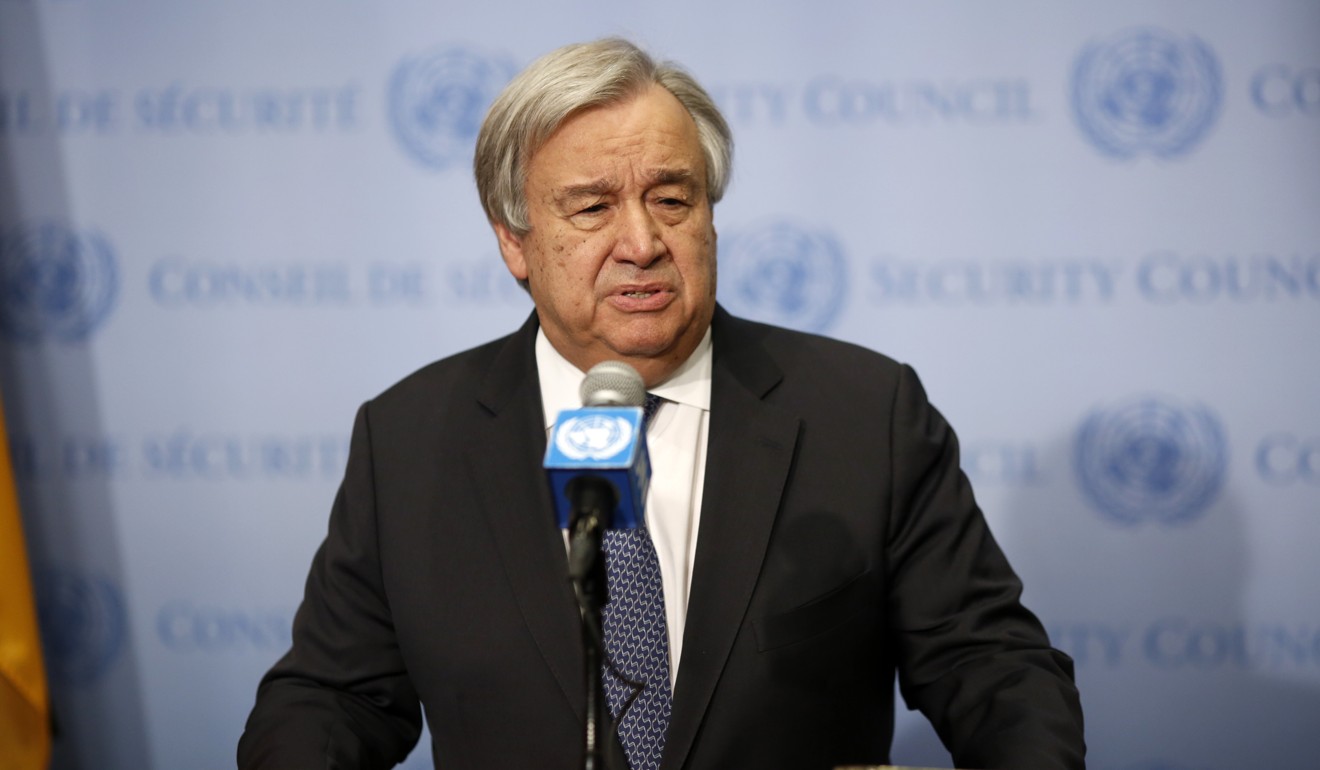
Beijing wants ex-Hong Kong police chief Andy Tsang, a tough-on-crime official, to lead UN agency fighting drug crimes
- Tsang is unapologetic about his tough approach to policing
- It is Beijing’s first attempt to fill a top position at a major international organisation since it arrested Interpol chief Meng Hongwei

China has nominated former Hong Kong police chief Andy Tsang Wai-hung to be the next leader of the United Nations organisation fighting drug crimes, the South China Morning Post has learned.
The nomination is China’s first attempt to fill a top position at a major international organisation since it detained Meng Hongwei, then the head of the global policing body Interpol, last year.
If chosen for the job of executive director at the United Nations Office on Drugs and Crime (UNODC), Tsang would be the second Hongkonger Beijing had put forward to take the helm of a major UN branch after Margaret Chan Fung Fu-chun, who was director general of the World Health Organisation (WHO) from 2007 to 2017.
Tsang, 61, who led the Hong Kong Police Force during the Occupy protests in 2014, could not be reached for comment. Late last month he visited Vienna, where UNODC is headquartered, to lead a Chinese delegation in his capacity as deputy director of Beijing’s National Narcotics Control Commission.

The trip was scheduled so he could attend the 28th session of the Commission on Crime Prevention and Criminal Justice, organised by the UNODC.
According to the website of the National Narcotics Control Commission, Tsang also held bilateral meetings with representatives from Russia, Britain, Australia, Japan, South Korea, Thailand, South Africa, Pakistan, Nigeria and Kenya.
“Andy Tsang was here to canvass votes,” a person with knowledge of the situation said, adding Panama and Colombia had also fielded candidates for the position. “The decision-making process will take place in New York.”
It was understood UN Secretary General Antonio Guterres would select the successor in a few months to replace the current executive director, Yury Fedotov of Russia, who had been in office since 2010. Fedotov also holds the rank of undersecretary general of the UN.
Guterres would be “obliged” to consult with the five permanent members of the UN Security Council – China, the US, Britain, Russia and France – on the decision.
The UNODC did not respond to a request for comment.
Tsang, who retired from the police department in 2015, had been a divisive figure in Hong Kong because of his tough approach to handling protests, most notably during the Occupy protests, also known as the “umbrella movement”, in 2014.

Tsang was commissioner of the police force at the time, when tear gas was fired into the largely peaceful crowds calling for greater democracy in the former British colony. His approach was criticised by human rights activists, but won applause from pro-Beijing politicians and police officers.
During his time in office, Hong Kong crime rates dropped to their lowest levels since 1997. Tsang also overhauled and reformed the police department’s anti-terrorism units.
After his retirement from the police department, he swiftly attained jobs on the national level, first as a delegate to a largely ceremonial body advising the Beijing government, then, two months ago, as a deputy director of China’s paramount anti-drugs body.
He was described by the Chinese government as being capable of “using his experience with organised crime in Hong Kong to join the fight”.
Now Tsang has been nominated a role in an even bigger organisation, one that is in charge of tackling global drug trafficking, narcotics abuse, crime prevention and criminal justice, international terrorism and political corruption. The office has a budget of US$700 million and 23 offices worldwide.
His career advancement will depend on how much support he gets from the international community, especially Western nations that have criticised the Hong Kong government’s approach to handling the Occupy protests, as well as a broader sense of distrust from the US and EU to China’s rise to global power.
If he is chosen for the UN post, Tsang will leave a historic mark as a former Hong Kong public servant who also led a major international organisation.
Margaret Chan, who stepped down as head of the Geneva-based WHO two years ago, was criticised for the agency’s failure to contain the Ebola outbreak in West Africa in 2014-15 that killed 11,000 people.
She was also faulted in 2017 for the WHO’s travel expenses of about US$200 million each year, including first-class plane tickets and five-star hotels for herself.
But in a message marking her departure, Guterres praised Chan for “her immense contributions to the people around the world”.